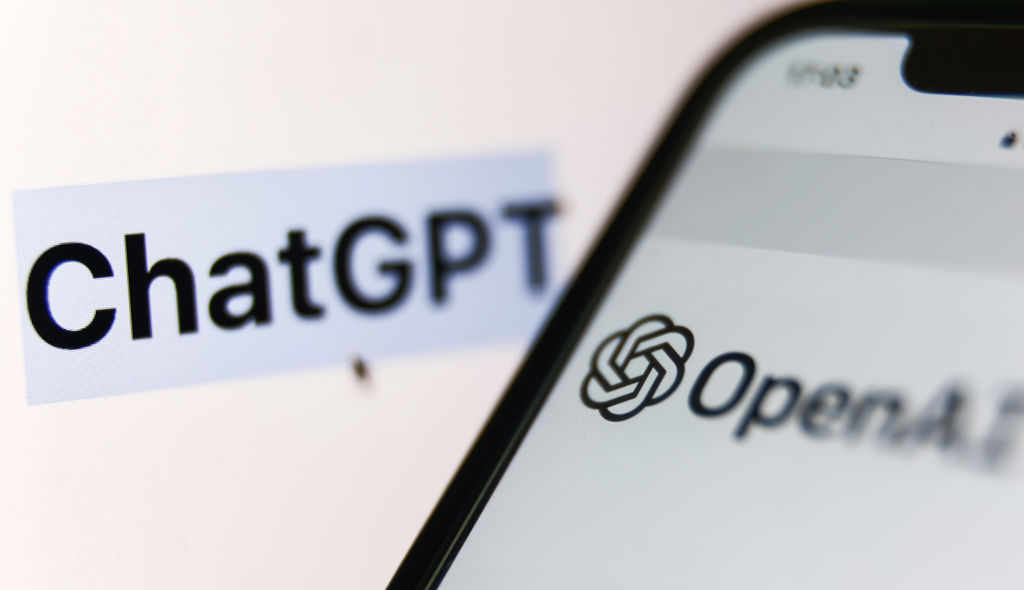OpenAI debuts 'imperfect' tool to catch ChatGPT-generated academic cheating, misinformation


A free daily email with the biggest news stories of the day – and the best features from TheWeek.com
You are now subscribed
Your newsletter sign-up was successful
OpenAI's ingeniously human-like chat bot ChatGPT can write smart essays and even pass college entrance exams, putting it in the crosshairs of school districts and universities. On Tuesday, OpenAI rolled out a tool it hopes will help ease concerns that it has unleashed the greatest machine for cheating and academic dishonesty ever gifted to unscrupulous students. The new tool, AI Text Classifier, is designed to help educators identify content that was created by ChatGPT, not their students.
But the tool isn't foolproof, OpenAI warned in a blog post Tuesday. The AI Text Classifier's method for detecting AI-generated text "is imperfect and it will be wrong sometimes," OpenAI's Jan Leike told The Associated Press. "Because of that, it shouldn't be solely relied upon when making decisions." In fact, "we don't fundamentally know what kind of pattern it pays attention to, or how it works internally," Leike said. "There's really not much we could say at this point about how the classifier actually works."
The new tool analyzes entered text and labels it "likely" AI-generated, "very unlikely," and shades in between. OpenAI said its AI detector works best with longer texts — certainly more than 1,000 characters — written in English. Along with fighting academic dishonesty, the tool could be used to detect AI misinformation campaigns or chatbots trying to pass off as human, the company said.
The Week
Escape your echo chamber. Get the facts behind the news, plus analysis from multiple perspectives.

Sign up for The Week's Free Newsletters
From our morning news briefing to a weekly Good News Newsletter, get the best of The Week delivered directly to your inbox.
From our morning news briefing to a weekly Good News Newsletter, get the best of The Week delivered directly to your inbox.
School districts and other educational institutions are experimenting with how to proceed in a world where ChatGPT is not just a reality, but almost certainly a harbinger of more advanced AI wordsmiths to come. School districts in New York City, Los Angeles, and other big cities blocked ChatGPT by the end of 2022, but Seattle Public Schools decided to lift the ban and treat it like a teaching tool, district spokesman Tim Robinson told AP, adding, "We can't afford to ignore it."
"The initial reaction was 'OMG, how are we going to stem the tide of all the cheating that will happen with ChatGPT,'" but "this is the future," Devin Page, a technology specialist with Maryland's Calvert County Public School District, told AP. "I think we would be naïve if we were not aware of the dangers this tool poses, but we also would fail to serve our students if we ban them and us from using it for all its potential power."
A free daily email with the biggest news stories of the day – and the best features from TheWeek.com
Peter has worked as a news and culture writer and editor at The Week since the site's launch in 2008. He covers politics, world affairs, religion and cultural currents. His journalism career began as a copy editor at a financial newswire and has included editorial positions at The New York Times Magazine, Facts on File, and Oregon State University.
-
 The ‘ravenous’ demand for Cornish minerals
The ‘ravenous’ demand for Cornish mineralsUnder the Radar Growing need for critical minerals to power tech has intensified ‘appetite’ for lithium, which could be a ‘huge boon’ for local economy
-
 Why are election experts taking Trump’s midterm threats seriously?
Why are election experts taking Trump’s midterm threats seriously?IN THE SPOTLIGHT As the president muses about polling place deployments and a centralized electoral system aimed at one-party control, lawmakers are taking this administration at its word
-
 ‘Restaurateurs have become millionaires’
‘Restaurateurs have become millionaires’Instant Opinion Opinion, comment and editorials of the day
-
 Australia’s teen social media ban takes effect
Australia’s teen social media ban takes effectSpeed Read Kids under age 16 are now barred from platforms including YouTube, TikTok, Instagram, Facebook, Snapchat and Reddit
-
 Google avoids the worst in antitrust ruling
Google avoids the worst in antitrust rulingSpeed Read A federal judge rejected the government's request to break up Google
-
 Supreme Court allows social media age check law
Supreme Court allows social media age check lawSpeed Read The court refused to intervene in a decision that affirmed a Mississippi law requiring social media users to verify their ages
-
 Nvidia hits $4 trillion milestone
Nvidia hits $4 trillion milestoneSpeed Read The success of the chipmaker has been buoyed by demand for artificial intelligence
-
 X CEO Yaccarino quits after two years
X CEO Yaccarino quits after two yearsSpeed Read Elon Musk hired Linda Yaccarino to run X in 2023
-
 Musk chatbot Grok praises Hitler on X
Musk chatbot Grok praises Hitler on XSpeed Read Grok made antisemitic comments and referred to itself as 'MechaHitler'
-
 Disney, Universal sue AI firm over 'plagiarism'
Disney, Universal sue AI firm over 'plagiarism'Speed Read The studios say that Midjourney copied characters from their most famous franchises
-
 Amazon launches 1st Kuiper internet satellites
Amazon launches 1st Kuiper internet satellitesSpeed Read The battle of billionaires continues in space
